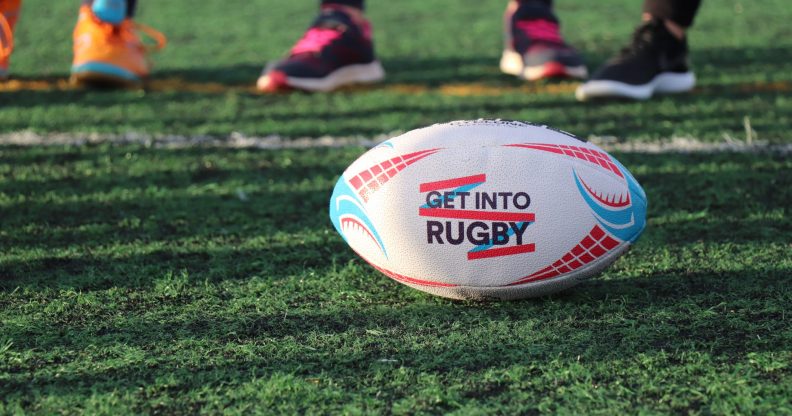World Rugby bans trans women from playing at elite women’s level in devastating blow to players

Stock photo. (Unsplash)
World Rugby has officially banned trans women from playing at an elite level in a devastating blow to LGBT+ players.
The global governing body for the sport announced the new policy on Friday (9 October) following a months-long review process that began with a forum held in London in February.
In a newly-released policy document, the governing body said allowing trans women to play rugby would pose a safety risk to cisgender women.
Meanwhile, trans men will be allowed to play on teams with cisgender men, but they will be forced to confirm that they understand there is a greater risk of injury by doing so.
World Rugby said its policy will not preclude national unions from “flexibility” in approaches at a grassroots level, but trans women will be strictly forbidden from playing at an elite or international level.
The policy change makes World Rugby the first global sport governing body to issue a blanket ban on trans women.
The ban was condemned by LGBT+ sporting organisation Athlete Ally. In a statement, the group said World Rugby’s policy is “in blatant opposition to the International Olympic Committee guidelines on transgender inclusion”.
The group also slammed World Rugby for introducing the ban without a formal voting process, saying it was “alarming given the horrific human rights repercussions of this discriminatory ruling”.
Athlete Ally executive director Hudson Taylor said the ban was introduced after experts “cherry-picked data from a body of evidence that has been widely contested”.
“Their decision to bar trans women from competing shows a lack of understanding about the complexities of performance, a lack of compassion for the rights and experiences of trans athletes, and perpetuates sexist ideas about female athleticism and potential for excellence,” Hudson said.
Anne Lieberman, director of policy and programs at Athlete Ally, said the policy dehumanises and vilifies trans women while hiding behind the guise of inclusion.
“Trans women do not pose a threat to women’s safety, and we encourage World Rugby to conduct a thorough study into the true threats to women’s safety, such as sexual abuse and harassment, and lack of resources for women players and coaches,” Lieberman said.
Trans rugby player Grace McKenzie said the new World Rugby ban is ‘transphobic’.
Elsewhere, trans rugby player Grace McKenzie branded the new policy “transphobic” and said it was “rooted in poor science”.
“This decision form World Rugby immediately calls into question their guiding principles of diversity and inclusion, and puts them behind all other international governing sport bodies in creating welcoming environment for their athletes,” McKenzie said.
Meanwhile, Nancy Kelley, chief executive of LGBT+ rights organisation Stonewall, said they are “deeply disappointed” by the decision to ban trans women from rugby.
We stand in solidarity with trans people across the world who’ll be disappointed by this news.
Kelley hit out at the governing body for using “hypothetical data modelling” in its research, which she said has “little relevance to the questions of fairness and safety in rugby”.
“Important policies like this should be based on robust, relevant evidence and work closely with trans people playing in the sport,” Kelley said.
“There is still a lot to learn about the impact of transition on athletic ability, but this does not mean that trans people are not already playing rugby or any other sport safely and fairly. As the world continues to evolve, it is vital that polices expand rather than restrict any sport’s potential to grow and benefit all our communities.”
She added: “We stand in solidarity with trans people across the world who’ll be disappointed by this news. We will do everything we can to make sport everyone’s game.”
The policy-change has faced fierce opposition from academics, athletes and international sporting bodies.
World Rugby faced significant backlash when details of its new policy first leaked in July.
In an open letter released at the time, more than 100 international athletes, officials and governing bodies – including USA Rugby, Rugby Canada and Rugby Australia – criticised the measures.
The letter “firmly opposed” plans to ban trans women from playing rugby and said there had been “no reported safety incidents” involving trans women at an elite level.
They also said there was no “anecdotal or scientific evidence that trans women are dominating the sport” and said a ban on trans women in the sport would harm all women.
Then, in September, more than 80 leading academics wrote in an open letter that there was “no evidence” to support a ban on trans women in rugby.
“There is no peer-reviewed, scientific evidence to justify a ban which would only be harmful to trans and gender diverse people,” the letter said.

